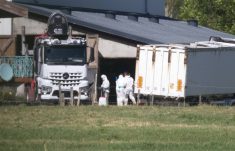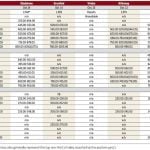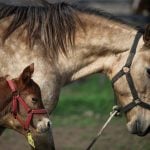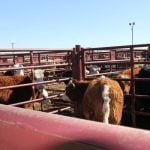Chicago Mercantile Exchange (CME) live cattle futures fell hard Thursday on news that Cargill plans to close its beef packing plant in Plainview, Texas, on Feb. 1 due to tight supplies, traders and analysts said.
CME live cattle futures at one point fell by their three-cent daily price limit, but recovered some of those losses later in the session.
"The U.S. cattle herd is at its lowest level since 1952. Increased feed costs resulting from the prolonged drought, combined with herd liquidations by cattle ranchers, are severely and adversely contributing to the challenging business conditions we face as an industry," John Keating, president of Cargill Beef, said in a statement.
Read Also

U.S. livestock: Cattle fall sharply as Trump says he’s working to lower beef costs
Chicago cattle futures fell sharply on Friday after U.S. President Donald Trump said his administration was working to lower the…
Spot February closed at 126.6 cents per pound, down 1.925 cents, or 1.5 per cent. April ended down 1.825
cents, or 1.38 per cent, at 130.875 cents (all figures US$).
"It was a case of shoot first and ask questions later," Oak Investment Group president Joe Ocrant said in response to what he called futures’ overreaction to news of the plant’s closing.
There was nothing overly bearish about Cargill’s announcement, said Ocrant. It confirmed what people knew all along — that cattle numbers are the lowest in 60 years because of drought, he said.
David Hales, president of Hales Trading Co, characterized Thursday’s selloff as "panic selling" driven by the belief that the plant closing would create a surplus of cattle, allowing packers to buy them cheaper.
"That line of reasoning would only be true if packers were killing at full capacity, and that’s not the case," said Hales.
CME live cattle futures’ sellers outnumbered buyers after grocers showed interest in buying beef only at lower prices.
The price for wholesale choice beef Thursday was $192.20 per hundredweight (cwt), $1.63 lower than Wednesday, with sales volume of 215 loads. It was the most for a Thursday since 217 loads on Dec. 27, according to the U.S. Department of Agriculture.
Investors were still reeling from this week’s lower cash cattle values as processors reduced spending to realign their margins.
Cash cattle in the U.S. Plains fetched $124-$125/cwt, compared with $125-$128 last week, feedlot sources said.
HedgersEdge.com put the average beef packer margin for Thursday at a negative $36.95 per head, compared with a negative $46.90 on Wednesday and a negative $66.75 on Jan. 10.
CME feeder cattle moved lower for an eighth consecutive day, in sympathy with the steep drop in the live cattle market.
January ended 2.675 cents/lb. lower, or down 1.82 per cent, at 144.4 cents. Most-actively traded March finished at 145.85 cents, down 2.375 cents, or 1.6 per cent.
Hogs rally with cash
Hog futures rallied with stronger cash hog prices that sparked short-covering, traders and analysts said.
Packers bolstered inventories before the weekend and ahead of the U.S. Martin Luther King Jr. Day holiday on Monday, one trader said.
Hog supplies have already tightened seasonally and are expected to get even harder to come by when colder weather moves into the U.S. Plains by Monday, he said.
Chilly temperatures slow animal weight gains, limiting supplies available to packers. Some farmers may keep doors to confinement buildings closed to retain heat.
The government on Thursday showed the average hog price in the most-watched Iowa/Minnesota market at $86.66/cwt, $1.82 higher than Wednesday.
Spot February hogs settled 0.8 cent/lb. higher, or up 0.88 per cent, at 85.95 cents. Most-active April ended at 88.075 cents, 0.65 cent higher, or up 0.74 per cent.
— Theopolis Waters writes for Reuters from Chicago.
Related story:
Cargill to shut Tex. beef plant as U.S. herd shrinks, Jan. 17, 2013















